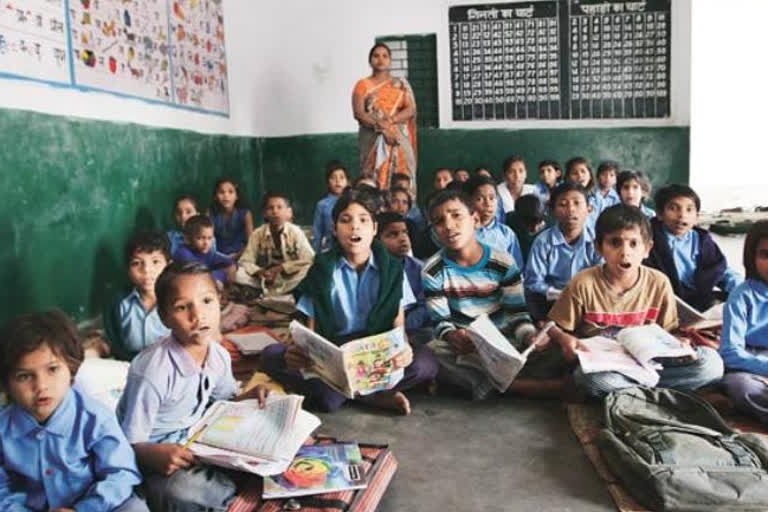New Delhi: In a setback to nearly four lakh contractual teachers in Bihar, the Supreme Court Friday refused to regularise their services and set aside the Patna High Court ruling that they were eligible to get equal pay for equal work.
A bench of Justices Abhay Manohar Sapre and U U Lalit allowed the plea of the Bihar government challenging the October 31, 2017, high court order and declined to treat contractual teachers at par with regular educators.
The top court said the Bihar government was justified in having two different streams or cadres for teachers and there has been no violation of the rights of 'Niyojit' (contractual) teachers nor has there been any discrimination against them.
It, however, raised concern over the emoluments made available to Niyojit teachers at the initial stage and suggested that the state may consider raising the scales of such teachers at least to the level suggested by the three-member committee.
"If a pay structure is normally to be evolved keeping in mind factors such as 'method of recruitment' and 'employer's capacity to pay' and if the limitations or qualifications to the applicability of the doctrine of 'equal pay for equal work' admit inter alia the distinction on the ground of process of recruitment, the stand was taken on behalf of state government is not unreasonable or irrational," the bench said.
"The advances made by the state on these fronts are quite evident. All this was possible through the rational use of resources. How best to use or utilise the resources and what emphasis be given to which factors are all policy matters and in our considered view the state had not faltered on any count.
"The attempt in making over the process of selection to Panchayati Raj Institutions and letting the cadre of state teachers to be a dying or vanishing cadre were part of the same mechanics of achieving the spread of education. These issues were all part of an integrated policy and if by process of judicial intervention any directions are issued to make available same salaries and emoluments to 'Niyojit' teachers, it could create tremendous imbalance and cause great strain on budgetary resources," the bench said.
It said the budgetary constraints or financial implications can never be a ground if there is violation of fundamental rights of a citizen.
"Similarly, while construing the provisions of the RTE Act and the rules framed thereunder, that interpretation ought to be accepted which would make the right available under Article 21A a reality. As the text of the Article shows the provision is essentially child-centric.
"There cannot be two views as regards the point that Free and Compulsory Education ought to be quality education. However, such premise cannot lead to the further conclusion that in order to have quality education, Niyojit teachers ought to be paid emoluments at the same level as are applicable to the state teachers," the top court said.
